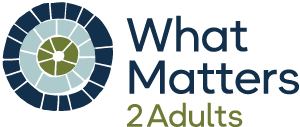The PRMs system
Building on the PROMPT-Care program, initially funded by the Cancer Institute NSW and BUPA healthcare, the Institute has developed an integrated statewide PRMs solution for people with cancer.
The Institute’s PRMs system:
- provides cancer services with the capability to electronically collect patients' reported health outcomes and experiences
- makes the information available to the relevant healthcare teams through the cancer service’s electronic medical record (MOSAIQ or ARIA).
Patients completing the survey also have the option to receive self-care information that directly relates to their survey responses.
On this page:
- How does the system work?
- Data storage and security
- Equity
- Aboriginal and Torres Strait Islander PRMs
How does the system work?
The below diagram provides a high-level overview of the workflow of the system. 

How was the system developed?
A statewide workshop was held in December 2017 with clinical, administrative and technical stakeholders from across NSW Health Cancer Services. The key requirements that surfaced from this workshop were:


Two governance groups were established: a Solution Working Group made up of IT staff, oncology system administrators and technically inclined clinical staff; and a Clinical Reference Group made up of nursing, medical and allied health staff as well as a number of leading PROM academics and researchers.
Consumer involvement and input was sought through the Cancer Institute’s Community and Consumer Advisory Panel. In addition, as sites went live, patient input was fed back through staff.
System development is managed through an 'Agile' approach, starting with a minimum viable product with ongoing end user feedback informing enhancements and new functionality to ensure the system is fit for use and fit for purpose.

![]()
1. Brainstorm
Requirement analysis with PRMs governance groups.
![]()
2. Design
Minimum viable product
design iterations.
![]()
3. Development & testing
Build application.
Identify defects and resolve bugs.
![]()
4. Feedback
Continual engagement and codesign with PRMs governance groups and implementation sites.
Data storage and security
The PRMs system follows strict rules and policies regarding the secure collection, storage and transfer or information. This is done in order to protect any unathorised access and loss or misuse of data stored within NSW Health networks.
The Institute ensures the safety of the PRMs system by commissioning independent privacy impact assessments and by complying with eHealth NSW’s stringent Privacy and Security Assurance Framework (PSAF), which includes penetration testing of the system.
Equity
Web Content Accessibility Guidelines (WCAG)
>The Cancer Institute NSW employed AccessHQ’s Accessibility Audit Service to assess the PRMs Survey Application’s WCAG 2.0 (Level AA) compliance. This audit included; a code scan, a visual inspection, keyboard testing and screen reader testing.
Culturally and Linguistically Diverse (CALD)
The Cancer Institute NSW recognises that some people and communities have a higher risk of cancers and experience poorer cancer-related health outcomes. This includes some multicultural (or culturally and linguistically diverse) communities. Therefore, the Institute is working across several initiatives and programs to improve cancer outcomes for these groups.
In alignment with these objectives, the PRMs Program now provides its service in the following languages:
- Arabic
- Chinese simplified
- Chinese traditional
- Vietnamese
- Spanish
- Italian
- Korean
- Greek
Aboriginal and Torres Strait Islander PRMs
The Cancer Institute NSW recognise that Aboriginal and Torres Strait Islander people experience a higher burden of cancer with higher mortality rates.
We understand the importance of incorporating social and cultural determinants of health when developing programs of work with Aboriginal communities.
In the first half of 2021, the Cancer Institute in partnership with the University of Sydney and University of Queensland won a grant to test the implementation of the What Matters 2 Adults measure. This is a new holistic wellbeing measure with ten dimensions that were developed in partnership with, and underpinned by, the values and preferences of Aboriginal and Torres Strait Islander people.
This project will inform wider implementation of What Matters 2 Adults for other services and settings, to drive real improvements in the health and wellbeing of Aboriginal and Torres Strait Islander people.

If you would like more information on the Patient Reported Measures Program, please email us at cinsw-prms@health.nsw.gov.au.
